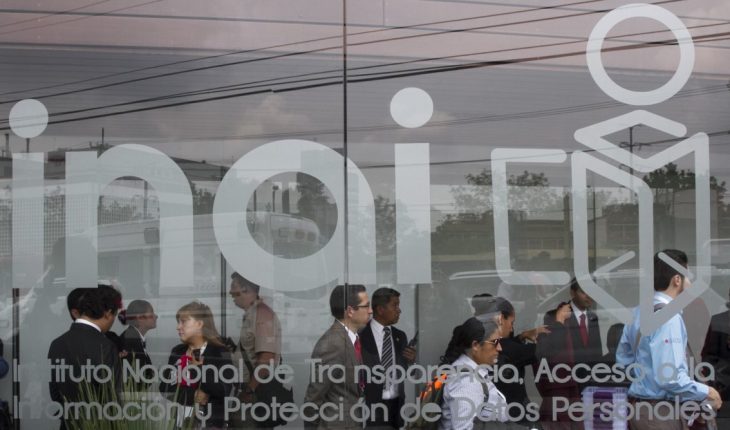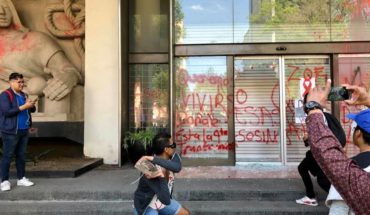The presiding commissioner of the National Institute of Access to Information (INAI), Francisco Javier Acuña, said yesterday, during the signing of a collaboration agreement with UNESCO, that transparency is key in any democracy to know and monitor what public power does, and therefore combat corruption.
Without referring directly to President Andrés Manuel López Obrador, who in recent weeks has questioned the existence of INAI in his conferences by even accusing him of covering up alleged acts of corruption, Javier Acuña defended the work of the Institute by pointing out, on the contrary, that it is responsible for monitoring that the right to know is fulfilled.
You may be interested: AMLO analyses disappearing more than 100 autonomous agencies and presenting constitutional reform
“INAI, which heads the National Transparency System, and the 32 similar institutions at the local level, have immense work: helping, ancillary, seeking and resolving with some kind of sanction the resistance to the right to information, which is actually the right to public truth,” he stressed before representatives of the Executive, Legislative and Judicial branches.
At the event held virtually on the occasion of the International Day of Universal Access to Information, INAI signed a collaboration agreement with the UNESCO Office in Mexico aimed at designing coordinated actions for the development of education, science, culture and communication and information in the country.
In his speech, the head of that office, Frédéric Vacheron, took the opportunity to express his support for the work done by INAI and agreed on the importance of ensuring the full right to access to information “in all public instances and at all levels of government”.
Vacheron further considered that efforts should be redoubled to bring the possibility of exercising this right fully to vulnerable groups, such as indigenous communities, persons with disabilities or those with limited resources, victims of exclusion and misinformation.
“Today I invite you to redouble your efforts and address the challenges of implementing universal access to information. The importance of legal assistance, dissemination, training, simplification of procedures and time reduction, as well as the relevance of maintaining public records and files needs to be emphasized,” he said.
Read more: A conversation with Joel Salas: mornings, corruption and emblematic inAI cases
Representatives of other powers also participated in the signing of this Convention. The intervention of the Ministry of the Court, Jorge Pardo Rebolledo, who in addition to agreeing on the importance of access to information stressed that it is vital that the free dissemination of such information through the journalistic exercise is ensured.
“To move forward, it will be essential that people who request, disseminate and build opinions based on the information they have access to feel truly free to express themselves, without fear or fear of repression or intimidation,” he said.
For her part, the secretary of the Public Service Irma Eréndira Sandoval, highlighted the coordinated work they have done with INAI because she agreed that the flow of information is a key element in the fight against corruption.
What we do at Animal Politics requires professional journalists, teamwork, dialogue with readers and something very important: independence. You can help us keep going. Be part of the team.
Subscribe to Animal Politics, receive benefits and support free journalism.#YoSoyAnimal
translated from Spanish: Transparency is key to monitoring power and combating corruption: INAI
September 29, 2020 |




